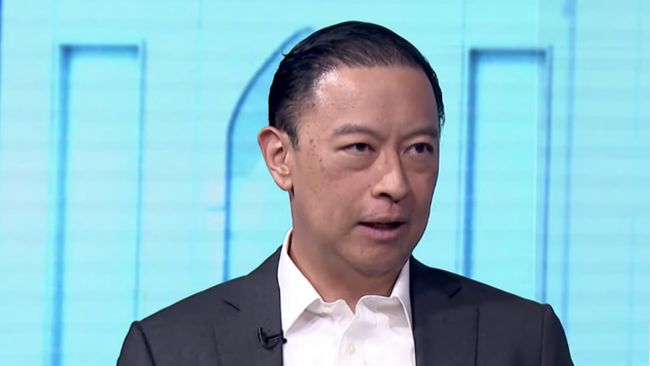Jakarta, CNBC Indonesia – Thomas T. Lembong, Co-Captain of the Anies Baswedan-Muhaimin Iskandar National Team (AMIN National Team), admitted that he regretted being part of the government of President Joko Widodo (Jokowi). Tom, his nickname, served as Minister of Trade and Head of the Investment Coordinating Board (BKPM) in President Jokowi’s first term.
“The more I delve into the economic data, I am really, really sad. Really sad, really concerned. And I have quite a big regret, regret because I was once part of the government,” said Tom Lembong, in the discussion “Harsa Youth : Proud to Speak” at On3 Senayan, GBK, Jakarta, quoted from Detikcom, Monday (12/2/2024).
While implementing policy, Tom revealed many strategies that on average did not work or failed a lot.
ADVERTISEMENT
SCROLL TO RESUME CONTENT
According to him, one form of failure in question is that the Indonesian Government has been unable to overcome the condition where in the last 10 years the number of the middle class in Indonesia has not experienced significant growth.
He also gave the example of motorbike sales data which according to him is more in line with reality than Gross Domestic Product (GDP) data. According to Tom, in 2013 there was a peak in motorbike sales, reaching 7.9 million units sold. However, from year to year, this figure has decreased, especially due to the pandemic. However, until now motorbike sales are only around 5 million units per year.
This data, according to him, illustrates the reality that the middle class is not developing.
“In the last ten years our middle class has not developed. The best minimum is stagnant, not increasing and there is quite a large potential for our middle class to shrink because once again, for me the most appropriate indicator is the number of motorbikes,” he said.
The same graphic shape can also be seen from the growth in purchases of cars and electronic goods, where the numbers continue to decline from year to year. He thinks this condition can occur due to inequality.
Based on World Bank data in its report entitled “Aspiring Indonesia – Expanding the Middle Class” which was released in 2020, it was recorded that almost half of Indonesian people were moving towards the middle class. According to the World Bank, the number reached 114.7 million people.
The World Bank revealed that this number reached 44% of Indonesia’s total population which reached 261 million people in 2016. However, it should be noted that the number of the upper middle class is less than the lower middle class or towards the middle class. The number, according to the World Bank, is only 53.6 million or 20.5%.
The World Bank itself divides classes of society based on their expenditure. The following is the classification:
- Upper Class: spending more than IDR 6,000,000 per person per month
- Middle Class: expenses IDR 1,200,000 – IDR 6,000,000 per person per month
- Towards the Middle Class: spending IDR 532,000 – IDR 1,200,000 per person per month
- Vulnerable: spending IDR 354,000 – IDR 532,000 per person per month
- Poor: expenditure below the national poverty rate or less than IDR 354,000 per person per month
Minister of Finance (Menkeu) Sri Mulyani Indrawati previously admitted that government policy has not focused on maintaining the ‘wallet’, aka the purchasing power of the middle class. In fact, the purchasing power of this group is not strong enough to meet their living needs.
According to him, the government has so far focused on handling the economy of the poor or those belonging to the bottom 20% of the class, through various social assistance programs. Meanwhile, the middle class has no policy focus in the APBN.
“Regarding the middle class, this is something that we really need to continue to calibrate our policies because in terms of fiscal the focus has always been on the bottom 20%, we have so far been relatively well established,” said Sri Mulyani at the 2024 National Economic Outlook Seminar at the Hotel. St Regis, Jakarta, quoted Monday (12/2/2024).
Sri Mulyani explained that the policy focus in the APBN for the middle class had not been specifically included due to different purchasing power between class percentiles, as well as behavioral patterns.
“The middle class has a very large range, if we talk about percentiles 3 to 7, the variety of behavior is different, the purchasing power is different,” said Sri Mulyani.
Therefore, to support the survival of the middle class, what the government can do now, he said, is to ensure that all public service sectors are affordable and of good quality.
“That’s why when we talk about the issue of educational waste infrastructure, it becomes something that is of concern, clean water, electricity, internet are something that the middle class needs, they need it but they don’t have a lot of purchasing power, that’s why it has to be available and affordable and they start demanding quality,” he stressed.
[Gambas:Video CNBC]
Next Article
Suffering of the Poor Class in RI: Not Poor, Rich Still Far Away
(haa/haa)
